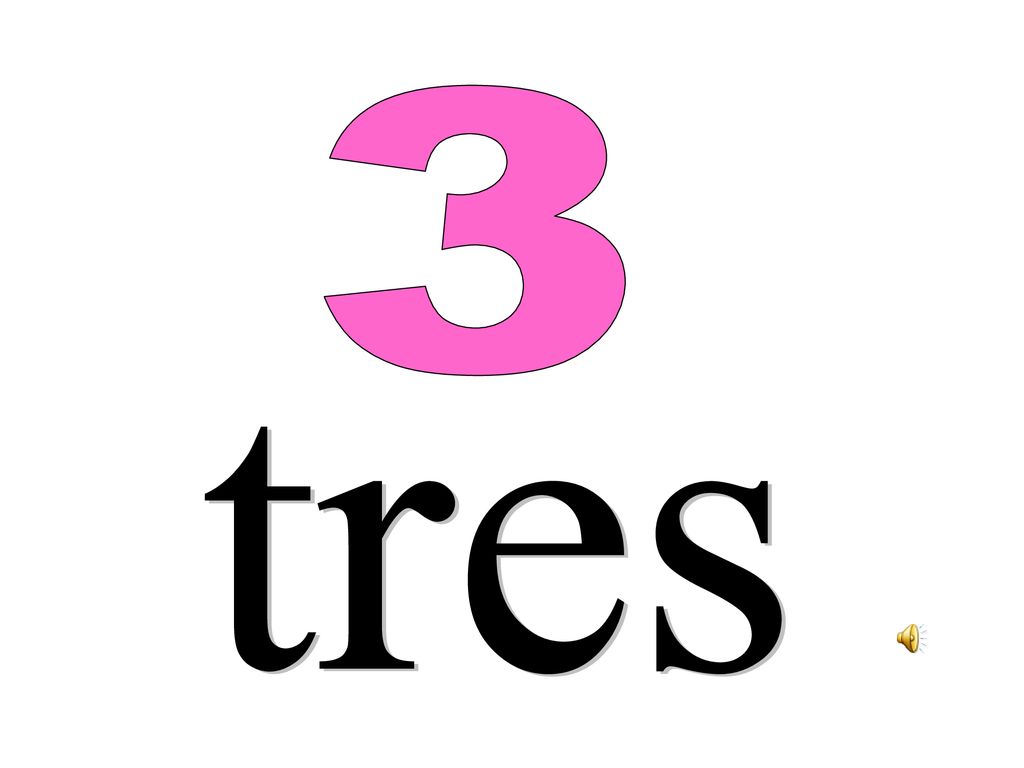Sometimes, a simple phrase can hold a surprising amount of meaning, and that's certainly the case with "très bien." This little bit of French, which you might hear quite often, is basically a way of saying "very well," "good!" or even "very good!" It's a versatile expression that pops up in all sorts of conversations, letting people know you're happy with something or that things are going along nicely. You see, it's not just a direct translation; it carries a certain feeling, a sense of approval or satisfaction that makes it a really handy phrase to have in your vocabulary, especially if you're looking to connect with others in a more natural way.
- Golfland Sunsplash California
- Regal Springfield Town Center
- Company Guaranteed Rate
- New York Jets Vs Steelers Match Player Stats
- Citizenm New York Times Square Hotel New York Ny
So, this piece is going to gently pull apart exactly how you might put "très bien" to use in a whole bunch of different spoken situations. We'll look at the various shades of meaning it carries, from a simple affirmation to a more enthusiastic declaration of something being quite excellent. You know, it's almost like understanding the subtle nod or a warm smile that goes along with the words themselves. We're talking about more than just definitions here; it's about getting a feel for the rhythm of how people truly speak and express themselves when they use this particular French saying.
For those who are just starting to get a grip on French or even folks who have been around the language for a bit, recognizing the different ways "très bien" fits into daily chatter can really open things up. There are, actually, over a hundred thousand English interpretations of French words and phrases out there, and this one, "très bien," is a rather popular one. It shows up in so many different places, from casual chats about how someone is doing to more formal statements about something being completed to a high standard. Knowing how to pick up on these cues can really make a difference in how you experience the language, and, you know, how others experience your efforts to speak it.
Table of Contents
- What Does "Très Bien" Really Mean?
- How Do We Use "Très Bien" Every Day?
- "Très Bien" - Showing You Agree or Are Happy
- When Is "Très Bien" More Than Just "Good"?
- Finding "Très Bien" in Different Conversations
- Is "Très Bien" Always About Being Positive?
- The Many Interpretations of "Très Bien"
- Getting a Feel for "Très Bien"
What Does "Très Bien" Really Mean?
When you hear "très bien," it's essentially a quick way of saying something is "very well," or that it's "good!" and even "very good!" in a general sense. This little phrase, you know, carries quite a bit of weight for being so short. It's a common bit of language that French speakers use to express a sense of satisfaction or to give a thumbs-up to something. It’s almost like a linguistic pat on the back, a simple way to convey that something meets or even exceeds expectations. So, if someone asks you how a task went, and you reply with "très bien," you're letting them know it went off without a hitch, that it was, in fact, quite successful.
This phrase is pretty adaptable, you see, and its exact sense can shift a little bit depending on how it's used. For instance, it can be a straightforward affirmation, a quick way to say "yes, that's fine." Or, it could be a more enthusiastic declaration, like when you’re really pleased with something someone has done. It’s actually one of those bits of vocabulary that you pick up early on when learning French, and for good reason, too. It's just so handy for so many common interactions, letting you express approval without needing a whole string of words. In a way, it simplifies communication, making it easy to share your positive feelings about a situation or an outcome.
How Do We Use "Très Bien" Every Day?
This post is going to lay out exactly how you can put "très bien" to work in a wide variety of everyday sentences. You might find yourself using it more often than you think once you get a feel for its different applications. It's not just for saying something is "good" in a general sense; it can be used to describe how a person is feeling, how a job was performed, or even to express agreement with an idea. We’ll look at the specific ways this phrase fits into different conversational settings, giving you a clearer picture of its practical value. It’s really about getting comfortable with its natural flow in spoken French, rather than just knowing a simple definition from a book.
For example, you could be talking about a meal you just ate, and if it was quite tasty, you might say it was "très bien." Or, if a friend tells you about their plans for the weekend, and you think they sound like a really good idea, you could respond with "très bien." It’s a bit like saying "that sounds excellent" or "I approve of that." The way it expresses a general sense of approval or a positive assessment is what makes it so useful. You know, it's a phrase that truly helps you blend into everyday conversations, making your French sound more natural and less like something pulled straight from a textbook. It’s a very common way to show you’re on board with something.
"Très Bien" - Showing You Agree or Are Happy
One of the main ways "très bien" gets used is to show approval, to express agreement, or to convey a sense of satisfaction. When you hear it in these contexts, it’s really about someone giving their stamp of approval to something. For instance, if a friend asks, "Ça va ?" which is a way of asking "how are you?", a common and cheerful response could be "Très bien!" This simply means "very well" or "I'm doing quite good." It’s a friendly and straightforward way to let someone know that things are proceeding nicely for you, and you are feeling fine. It’s a pretty direct way of sharing a positive update about your current state, without needing to go into a long explanation.
This expression, "très bien," really does act as a sort of verbal nod of approval. If someone presents an idea, and you find it to be quite suitable or agreeable, you can simply say "très bien." It suggests that you are content with the suggestion and see no issues with it. It’s a simple yet effective way to communicate that you are on the same page as the other person, or that you are pleased with what has been put forward. You know, it’s a bit like saying "that's perfectly acceptable" or "I'm completely happy with that." It just wraps up a lot of positive sentiment into two short words, making it a very efficient bit of language for expressing agreement or contentment.
When Is "Très Bien" More Than Just "Good"?
While "très bien" often gets translated as "very good" or "very well," it can actually carry a deeper sense of meaning, sometimes even implying "excellent" or "naturally" or "with good reason." This is where the phrase becomes a bit more nuanced, moving beyond a simple positive assessment to something more emphatic. When someone says "très bien" and means "excellent," it's usually in response to something that has been done with a high degree of skill or success. It's not just good; it’s remarkably good, something that truly stands out. So, you might hear this after someone has delivered a particularly impressive performance or completed a challenging task with remarkable success.
Moreover, the phrase can sometimes convey a sense of "naturally" or "with good reason." This particular usage of "très bien" acts as an emphatic form of the word "bien," which means "well" or "good." When used in this stronger way, it’s almost like saying, "of course, that makes perfect sense," or "that's exactly as it should be." It adds a layer of confirmation, suggesting that the outcome or situation is not just good, but logically or inherently good. For instance, if someone explains why a certain decision was made, and you completely agree with the reasoning, you might respond with "très bien," implying that the decision was, in fact, quite justified and well-considered. It really shows a deeper level of agreement or understanding.
Finding "Très Bien" in Different Conversations
You can find all sorts of translations for "très bien" in English, like "that's fine," "very well then," and, of course, just "very well," along with many others. The variety of these translations shows just how adaptable this French phrase truly is, and how its precise meaning can shift subtly depending on the situation it's used in. It's not a rigid expression with only one possible English equivalent; instead, it's a flexible tool for communication that can take on different shades of meaning. For instance, "very well then" often implies a sense of acceptance, perhaps after some consideration, while a simple "very well" can be a straightforward confirmation. It’s really about picking up on the subtle cues of the conversation.
When you come across "très bien" in various conversations, it's worth considering the context to grasp its full implication. Sometimes, it's a polite way to end a discussion, a bit like saying "okay, that settles it." Other times, it's a genuine expression of admiration for something well done. It's a bit like how we use phrases in English that can mean slightly different things depending on the tone of voice or the situation. Knowing these different possibilities helps you to truly understand what a French speaker is trying to get across when they use this common expression. It's a very common phrase, so understanding its breadth of use is quite helpful.
Is "Très Bien" Always About Being Positive?
While "très bien" usually carries a positive feeling, it's important to know that it can also appear in sentences that convey a less cheerful or even negative state. For example, the phrase "En ce moment je ne me sens pas très bien" is a way of saying, "Right now, I don't feel very well." In this instance, "très bien" is part of a negative construction, showing that the person is not feeling good. This demonstrates that the phrase itself is a modifier, and its overall impact depends on the words it’s paired with. So, it's not always about a happy exclamation; it can be part of describing a less than ideal situation, too. It’s really about how it combines with other parts of the sentence.
This particular usage, where "très bien" is used to describe a state of not feeling well, is a good reminder that language often has these little twists. You know, it's not always as simple as a direct, one-to-one translation. The presence of the negative particle "ne...pas" changes the entire meaning, turning a phrase that usually means "very good" into one that means "not very good" or "not well." It's a fairly common way to talk about one's health or general state of being. So, while you'll mostly hear "très bien" in a positive light, it's worth keeping this other side of its usage in mind, as it's a perfectly normal way to express a feeling of being unwell.
The Many Interpretations of "Très Bien"
When you look up the French to English interpretation of "très bien" in a language resource, you'll find it often includes a free vocabulary trainer, verb tables, and pronunciation functions. These tools are incredibly helpful for getting a full grasp of how words like "très bien" truly operate within the French language. They help you not only with what the words mean but also how to say them correctly and how they might change if they were a verb. For a phrase like "très bien," which is an adverbial expression, understanding its fixed form and how it modifies other parts of a sentence is quite useful. You know, it's all about getting the whole picture, not just a single word definition.
The fact that "très bien" can be found with so many accompanying resources shows its importance in everyday French. It's a fundamental building block for expressing approval, agreement, and general satisfaction. When you hear it, it's usually a positive signal, a confirmation that things are going smoothly or that something has been done to a high standard. It's a rather common phrase that, despite its simplicity, conveys a lot of meaning. So, whether you're just starting out or looking to polish your French, getting a solid grip on "très bien" and its many uses is a very good step. It truly helps you sound more natural when you speak.
Getting a Feel for "Très Bien"
To truly get a feel for "très bien," it helps to listen for it in different spoken situations. You'll notice how it often comes with a particular tone of voice, a certain way of being said that adds to its meaning. Sometimes it’s a quick, sharp "très bien!" that shows enthusiasm, and other times it’s a softer, more reflective "très bien" that indicates thoughtful agreement. This subtle vocal coloring is a big part of how language works, and it’s something that simple definitions don’t always capture. It’s almost like learning the music of the language, not just the individual notes. You know, the way a phrase is delivered can tell you just as much as the words themselves.
Practicing saying "très bien" yourself in different contexts can also make a big difference. Try using it when you want to show approval for something, or when you’re agreeing with a plan, or even when you’re simply responding to someone asking how you are. The more you put it into practice, the more natural it will feel, and the more confident you’ll become in using it appropriately. It’s a very versatile little phrase that can smooth out many conversations and help you connect with French speakers on a more authentic level. So, go ahead and give it a try; you might find it becomes one of your favorite bits of French to use.
Related Resources:



Detail Author:
- Name : Prof. Celestino Wintheiser
- Username : tom.watsica
- Email : mabel.hoeger@armstrong.com
- Birthdate : 2004-01-18
- Address : 516 Garland Locks Suite 655 Dellafurt, UT 59298
- Phone : 1-571-993-2138
- Company : Hamill LLC
- Job : Public Relations Specialist
- Bio : Impedit est officia et tenetur ullam omnis. Eum est quia culpa. Sunt et et et quia illum pariatur voluptatem. Qui cupiditate voluptas ipsam.
Socials
tiktok:
- url : https://tiktok.com/@dooleyb
- username : dooleyb
- bio : Qui cumque amet aut saepe molestiae ea impedit.
- followers : 6807
- following : 952
twitter:
- url : https://twitter.com/bulah_dooley
- username : bulah_dooley
- bio : Soluta autem iste omnis quas doloribus perferendis debitis vel. Vitae impedit tempore qui. Nisi ut soluta quae quos.
- followers : 1079
- following : 671
facebook:
- url : https://facebook.com/bulah.dooley
- username : bulah.dooley
- bio : Voluptatum asperiores quam recusandae et modi unde itaque.
- followers : 2567
- following : 970
linkedin:
- url : https://linkedin.com/in/bulah_dev
- username : bulah_dev
- bio : Nulla molestiae beatae ut eaque enim dolores.
- followers : 6523
- following : 2316